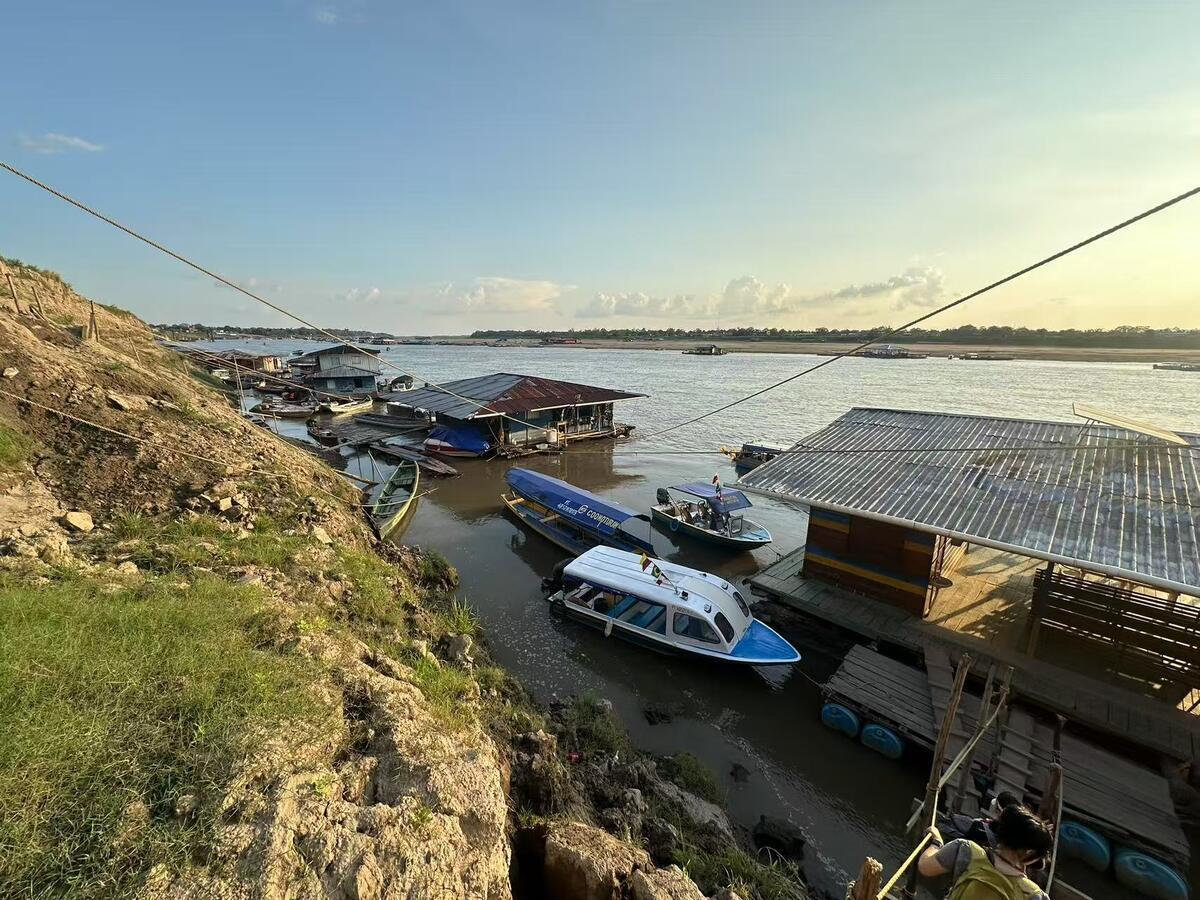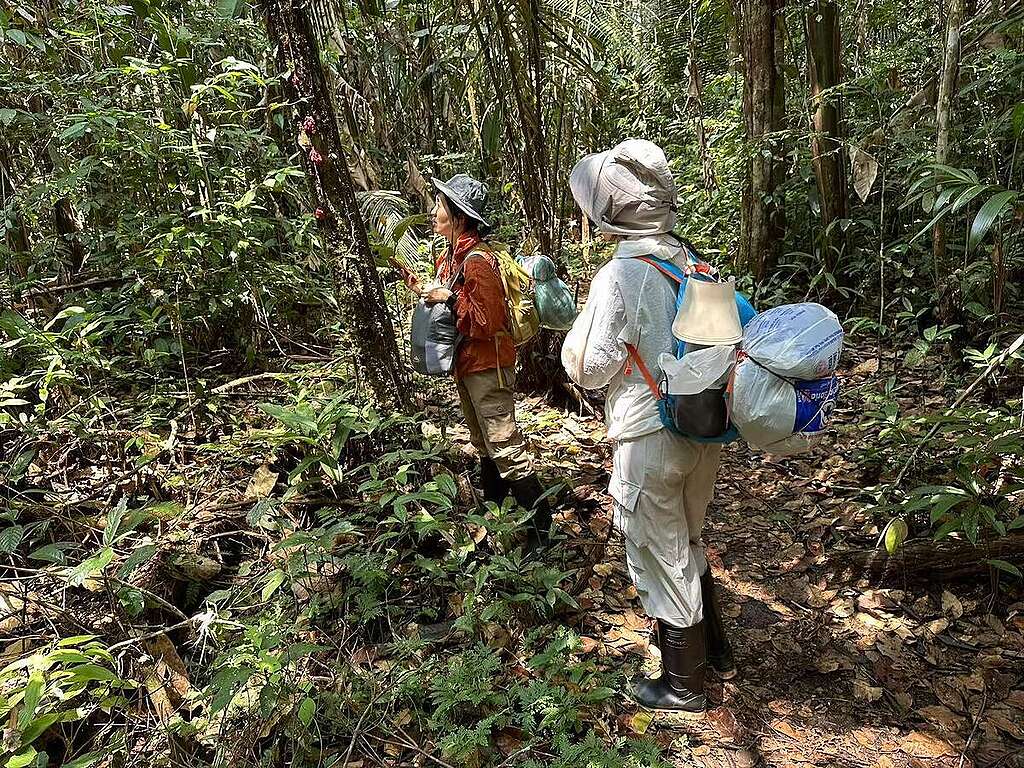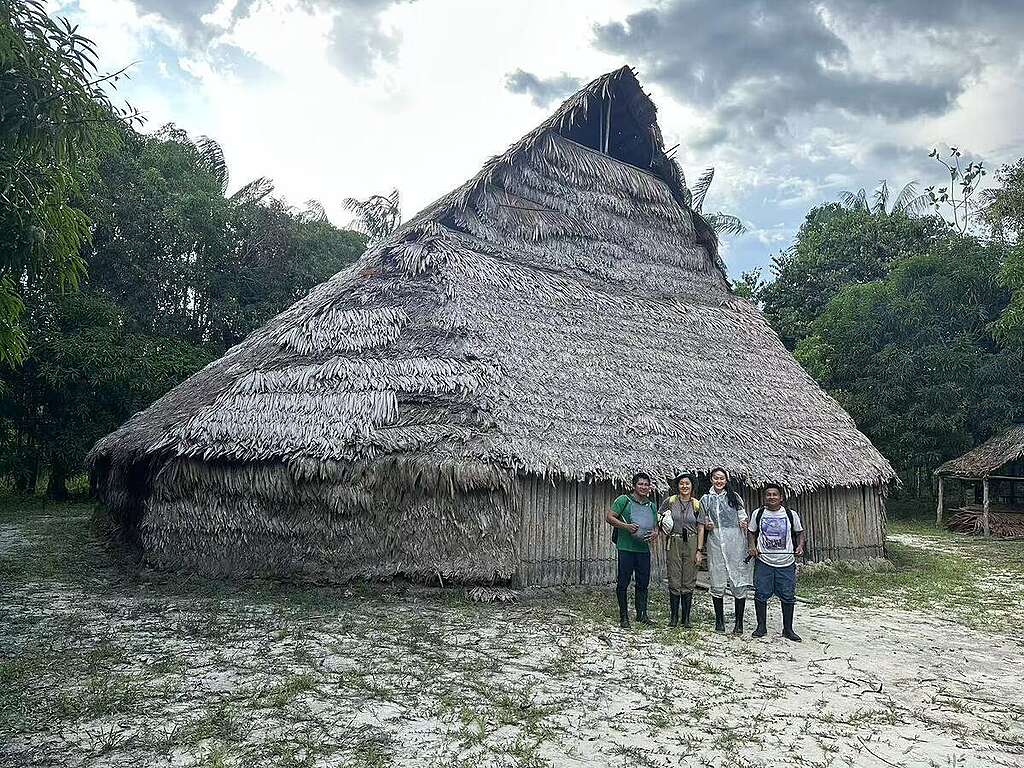Liu Min, better known as "Aunt Bear", was one of only three independent Chinese journalists to report from the global biodiversity talks (COP16) last November in Cali, Colombia, and she was the only podcaster. She has a decade of experience as an investigative journalist, working at some of the biggest magazines in China, and winning awards for her years-long investigation on child sexual abuse. She is frequently first on-the-scene for major environmental stories, exposing the wildlife impact of bird-catching nets in the Beijing suburbs and on the conservation of Giant Pandas in southwestern China.
In the week before COP16, I tagged along with her on a four-day trip into the Amazon, visiting Indigenous Ticuna and Witoto communities to learn about Indigenous Peoples' work in biodiversity protection and reporting on climate change's impact on the Amazon River.
As Brazil gears up for the the global climate talks at COP30, where forest protection, the Amazon, and biodiversity-climate connections will all wind together for what the Brazilian presidency has dubbed a "Nature COP", I asked Aunt Bear to share some observations on reporting and storytelling about the Amazon and local communities for a Chinese audience.

I'm curious how going to the Amazon rainforest before COP16 changed your perspective on watching the talks.
Before that, many of the topics discussed seemed abstract to me, and I couldn't directly feel the issue. We met a woman who was a professor of agroecology who said that they don't have data or statistics yet, but everyone can feel with their own eyes and bodies that the dry season is getting longer. And how they began to think that the Indigenous Peoples' traditional farming methods might be more effective. They are doing some very local, grassroots work, which I found very inspiring.
Then I thought about how China seems to have always overlooked this issue. We don't really have the concept of Indigenous Peoples. And most Chinese NGOs are staffed by people from first-tier cities who go to local areas to bring in advanced ideas. But the voices of local people are often overlooked. When I do similar research or reporting in the future, I might pay more attention to how people who have lived here long-term perceive things and how they adapt. Some adaptation methods may not have fancy explanations, but they might still be useful and worth documenting.

How were Chinese media outlets reporting on COP16?
I think [Greenpeace East Asia's Beijing-based policy analyst] Yao Zhe's article was excellent because it helped me understand what was going on. She discussed the bureaucracy, the petty nitpicking, the delay tactics that everyone engages in. She spoke a lot of truth, exposing the overly-positive official narratives. But within China's domestic media landscape, we are very unfamiliar with issues like biodiversity and collective financing [for environmental protection], so it takes a lot of time to get what's going on.
The podcast spent a lot of time talking about cockroaches. I'm curious: why the cockroaches?
It offers contrast. I often see posts about cockroaches on Red Note. Because of climate change, cockroaches are migrating northward [in China]. When a lot of southern cockroaches enter the north, they become a viral meme. So I thought mentioning this in the title would pique people's interest - it's disgusting and intriguing. Plus, if you're overly enthusiastic about going to the Amazon and learning useful knowledge, no one will read it. People don't want to learn knowledge. But if you say you had an unlucky trip, and it's absurd and funny, people might think "I want to hear about it." In the process, you cover the points you want to make.

What do you remember most from visiting the Amazon rainforest?
What I remember the most is when you asked our guide [a young man from the local Indigenous community] about how his father would hunt, and he mimicked his father's movements - sneaking around, listening, carrying his equipment. It added depth to the experience - an extra bit of information that makes you realize how people live in what otherwise seems like a boring jungle.
Bird watching, camping, and outdoor sports are all very popular in China now. But stories about nature conservation or forest protection don't get much attention. Why do you think this discrepancy exists?
Camping and extreme outdoor activities feel like consumer behaviors, where people are the consumers and the main subjects, and nature is an object to be admired, used, and enjoyed. In nature conservation and forest protection, nature is the subject, and humans are the object. So these are actually two different things. On the other hand, many birdwatchers have begun to take an interest in environmental protection.
But the issue is that in China, people have few opportunities to directly participate in conservation. The only options are donating to NGOs, reading their promotional material, or participating in their activities. There is a decline in civil society in China, where it seems we aren't able to take other proactive measures that would make an impact in changing policy.
Safaris, tours to Antarctica, trekking in the Amazon - these are very popular for people from China. When you're reporting on biodiversity, how do you approach your audience's relationship with nature?
Similarly, when people visit a safari park, the visitors have a consumer mindset - enjoying the beautiful scenery and being amazed by nature. But, there are still a few steps missing between this and protecting wildlife, and it's still impossible to smoothly link this to how we should actively, proactively protect ecosystems in our daily life.
August Rick is a campaign strategist for Greenpeace East Asia.
Note: An earlier version of this post referred to Aunt Bear and "Auntie Bear". This has been amended per the request of Aunt Bear.






